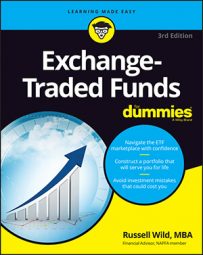Vanguard is also both an investment house that serves as a custodian of exchange-traded funds (ETFs) and is itself a provider of ETFs. (That’s also true of Schwab and soon will be true of T. Rowe Price, too.) There’s also “The Vanguard edge” (the ability to convert Vanguard mutual fund to an ETF that tracks the same index without tax ramifications). And Vanguard’s ETFs are top-notch products.
Incidentally, buying and holding Vanguard ETFs at Vanguard offers an advantage over buying and holding those ETFs elsewhere, in that you won’t pay any fees to trade. But Vanguard ETFs can be held at any brokerage, and typically the trading charges will be minimal, so Vanguard the shop and Vanguard the ETF supplier really should be assessed separately.
As for Vanguard the shop, the trading commissions (that apply to ETFs other than Vanguard’s own) are reasonable — $2 to $7 a trade, depending on the size of your Vanguard account — and the service is middle of the road (and better than that if you have big bucks with the company).
The top advantages of Vanguard include its broad array of top-rated index mutual funds. Index mutual funds and ETFs are close cousins, and sometimes it makes sense to have both in a portfolio.
If you do wish to hold Vanguard index mutual funds alongside your ETFs, Vanguard is an awfully logical place to hold them because you can buy and sell Vanguard funds, provided you don’t do it often, at no charge. At Fidelity, in contrast, buying any Vanguard mutual fund will typically cost you $75.
The other top advantage of Vanguard is the structure of the company. Vanguard is owned “mutually” by its shareholders, unlike, say, Fidelity, which is privately owned, or just about all the other brokerage houses, which are publicly owned.
The mutual ownership means that investors are shareholders in the company, and that means the Vanguard elite, although well paid, for sure, have an obligation to serve your best interests.
There is one significant drawback. For some strange reason, the company feels compelled to place your funds into two separate accounts: All Vanguard mutual funds go into one account; all mutual funds of other companies and all ETFs (whether from Vanguard or another firm) go into a separate “brokerage” account. This schizo system can make Vanguard statements somewhat harder to read than those of other brokerage houses.

